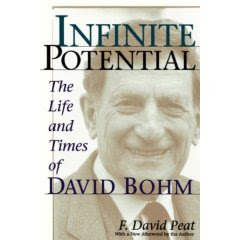 The 17th century philosopher Baruch Spinoza counseled that we strip ourselves of our attachment to our personal identity and instead use reason to take our place as citizens of the cosmos. Contemporary philosopher and novelist Rebecca Goldstein betrays Spinoza in her book Betraying Spinoza by considering how the environment he grew up in influenced his philosophical views. She also betrays Spinoza by telling something about the unusual circumstances in which she first encountered him.
The 17th century philosopher Baruch Spinoza counseled that we strip ourselves of our attachment to our personal identity and instead use reason to take our place as citizens of the cosmos. Contemporary philosopher and novelist Rebecca Goldstein betrays Spinoza in her book Betraying Spinoza by considering how the environment he grew up in influenced his philosophical views. She also betrays Spinoza by telling something about the unusual circumstances in which she first encountered him. I will also betray Spinoza. To begin with, my knowledge of his work is secondhand. Yet it has affected me profoundly.
The loss of individual identity, of subjectivity, advocated by Spinoza leads to what Goldstein calls radical objectivity. This objectivity is different from what, rightly or wrongly, is today taken to be the objectivity of science. Spinoza’s worldview is framed by reason, yet there is a strong ecstatic, or blissful, impulse it. (In fact the word ecstasy originally meant to stand outside oneself.) Goldstein sometimes pegs his views as ecstatic rationalism.
Baruch Spinoza grew up in a community of Portuguese Jews who had escaped from the inquisition and moved to Amsterdam where they were free to practice Judaism. A brilliant yeshiva student, who also read widely, he came to reject the rigidity of traditional practice and doctrine, and especially the notion of the Jews as the chosen people. His ideas eventually led to his excommunication. Goldstein traces how the spiritualized rationalism of Talmudic debate (a way of “meshing with the Devine” by studying his laws) and the Kabbalistic, or Jewish mystical tradition (strongly influenced by the Greeks) joined together with the recent suffering of the Jews at the hand of the inquisition to influence his philosophy. She says:
I have long thought that the distinctly platonic tone of Spinoza's philosophy, which consist not so much in his actual picture of reality but in the ecstatic impulse that radiates it, and that sharply distinguishes his rationalism from both Descartes' and Leibniz’s came to him by way of the kabbalistic influences which were vividly alive in his Portuguese community. And Spinoza's system will offer us, as we shall see, its own solutions to the two mysteries that the most central to kabbalistic speculations; the ontological mystery of why the world exists at all, and the ethical mystery of suffering; why does suffering---and of such mind-numbing magnitude---exist in this world, if God is both all good and all-powerful? (p. 91)
Although Spinoza suggests the key to avoiding suffering is to enlarge one's frame of reference to include all of creation, his views are grounded in bodily experience and in subjectivity. He wrote, “The endeavour, wherewith everything endeavours to persist in its own being, is nothing else but the actual essence of the thing in question.” ( The Ethics , Part III. VII, quoted in Goldstein p. 161) We come into being in a body and are committed to the well-being of this body in a way we are committed to nothing else. We cannot help it.
This basic yet nonetheless curious fact is at the core of most experience. It is what Spinoza calls conatus. Our emotions, bestowed on us by evolution to assure that we survive, make it so. Antonio Damasio, an emotion researcher, in his book Looking for Spinoza, points out that Spinoza anticipated much of current thinking in cognitive science. Damasio, for example, has amassed a great deal of neuroanatomical and clinical evidence that places the body and its emotions at the very core of the experience of self. Goldstein writes:
One cares about oneself simply because one is one’s self. A person is committed, immediately and unthinkingly, to the survival and flourishing of a single thing in the universe that she is. There is no reason, external to one's own identity with that thing--- one self --- that one should be so single-mindedly, unswayingly committed to it. What explains this commitment is nothing over and above the bare fact that one is who one is. (p.160)
When we are happy, this body and the experience of self that come with it seems to expand. When we are unhappy it seems to contract into itself. Our biological mandate, which we cannot refuse, is to try to expand this self as much as possible. Yet our emotions are shaped, or conditioned, by our background and also triggered by external circumstances. They are thus doubly contingent on things we cannot control. Spinoza argues that the only way to assure success in our commitment to ourselves is to greatly enlarge our point of view. We suffer less to the extent that we can distance ourselves from our own emotions. Goldstein says:
That problematic and precious “I” is, for Spinoza a symptom of a passivity, the acceptance of the contingently given, that weakens our capacities, drains and us, impedes our driving force to persist in our own being, to flourish in the world. Paradoxically the only way to flourish in one’s being is to cease being only that being.(p. 69)
Our very essence, our conatus, will lead us, if only we will think it all through, to a vision of reality that, since it is the truth, is in our interest to attain, and will affect such a difference in our sense of ourselves that we will have trouble even returning to the pre-philosophical attachment to ourselves.(p.162)
I had an illuminating experience while reading Goldstein’s book. Just as I was getting ready to go to the airport for my flight home from a trip, I checked my email and received some unanticipated bad news. A deeply unpleasant incident occurred on the way to the airport as well, in part because I was completely occupied processing my thoughts and feelings.
I arrived at the airport in a state of psychic shock. After stewing in my feelings for a while more, I felt drawn to reading Goldstein’s book; I read straight through to Boston. When I arrived home, my emotional pain had not gone away: it was a deep ache in my chest. Yet I was now able to accept these unpleasant events and the internal discomfort they caused without judgment. This seemed to free my mind from its tendency to process seemingly endlessly deeply upsetting events.
Spinoza’s pragmatic if challenging solution to the question of human suffering meets another strand of his philosophy. His basic assumption is one of holism. He begins The Ethics with the following definition,“By that which is self-caused, I mean that of which the essence involves existence, or that of which the nature is only conceivable as existent." (The Ethics, Part I, I, in Goldstein p.71) The universe causes itself. It is therefore deterministic, even if we with limited minds can not understand it. The universe defines logic, or as Goldstein says, it is logic self-aware.
But this reality is not the material world generally perceived by the senses. Sense experience is the lowest step on Spinoza’s hieracrchy of cognition; he calls it imagination. Rather reality is the web of rational necessary connections that underlie the cosmos. By forsaking personal identity, and using our reason, we can partake of this web of necessary connections of which we are, at least in our essence, inherently a part. Though this logic is something we can only fully experience with intuition, our reason prepares us and guides us to this knowledge of God with Nature---deus sive natura.

I had another experience that helped illuminate the power of Spinoza’s work. One morning after spending about an hour with my notes from Goldstein's book in preparation for writing this article, I went outside to go to my car. The shimmering light and my hour with Spinoza seemingly came together to allow me a taste of something extraordinary, which might have some relationship to the ecstacy associated with nature for Spinoza. This feeling came neither from the sensory details themselves, nor how they fit together. Rather it came from something intangible behind all this. Whatever it was seemed dazzlingly intelligent (though whether it was was rational, and thus conceptual, or non-conceptual, I do not know). In any case, the world appeared both material and immaterial, and I found myself soaring to the rhythm of the pulse between the two.
For the next several hours, whenever I turned from my work I could reconnect to this ecstatic feeling. (Even now when I extend my field of vision to its limits, I can recapture a faint echo of the feeling.) But later in the afternoon I came down hard.
A friend’s manipulation about something unimportant and my acquiescence in order to minimize the situation and avoid a showdown left me internally fuming. My effort to talk myself down and to distract worked only to an extent. It did not really get inside to the source of my intense reaction, and I could not completely put this reaction aside. Alas, even though I had tried not to betray Spinoza and myself, I ended up betraying us both.
I plan to read Spinoza’s books, even though their sparseness and rigor makes them daunting. I would like to get a more of a feeling for this web of necessary connections Spinoza calls reason and also how reason and intuition come together for him. Even more importantly, I hope his methodology---his bare bones rationality---in conjunction with his message, will help me become more immune to the seductive and tenacious pull of negative emotions (even when it is round about).
Although I tend not to think this way, I am aware that there may be a bonus. Actually my preference is for super-grounded experiences of altered consciousness rather than ecstatic ones. But hey, if it ever gets to be a real issue, maybe I can work something out.

Rebecca Goldstein, Betryaing Spinoza: The Renegade Jew who Gave Us Modernity (New York: Schocken Books, 2006).
Antonio Damasio, Looking for Spinoza: Joy, Sorrow, and the Feeling Brain (New York: Harcourt, 2003).














8 comments:
I'd say you should indeed continue to betray Spinoza and search the depths of that sensation which seems to have been so exhilarating.
This is the first time I come across your blog, but it will be worth to continue reading.
May you consider in your further reading of Spinoza the fact that us, as humans are now walking a path on becoming multi sensorial beings. Which may well enhance our congnitive capacity to in-depth intuition, as you best state it.
Best regars, I look forward to continue reading.
Thank you for asking me to think about Spinoza, whom I loved when I ready the Ethics long, long ago. I think of him as very much a philosopher's philosopher, and have wondered about the recent revival of interest in him, especially in Jewish quarters. I rather think it has to do with the world-wide revival of religiosity and religious extremism. Spinoza offers something else, that, as you clearly indicate, provides some of the emotional satisfaction of religion without a radical sacrifice of reason.
I do like Spinoza's rationalism, although it is hard to put into practice. I understood his 'conatus' to be a sort of impetus or striving for life, something like that is also described by Schopenhauer, but more as a passion. Spinoza describes it simply as a kind of self-preservative appetite implicit in the very possibility of individuality - not at all the self-absorbed 'me-first' kind of modern preoccupation that I suspect Goldstein describes and that you were struggling with on that ugly day. Sometimes it seems to me to be close to an 'elan vital', but most importantly, if you follow out the ethical implications, it means that aggrandizing the self to include more than the survival of this little mind and body, but all that is understood and cared for, then you can put up with the small affronts and failures more easily. Not a bad philosophy to hold when so many things are interconnected and so much at risk. The alternative is to curl up into a tight little ball of ferocious resentment, and that is also very widespread.
I admire you for thinking through the things you do and books you read so carefully. You read all the books I think I ought to read, but don't get around to.
Hilde
Lois, I am glad you wrote this piece on Spinoza. There is so much coming out on him, and I feel as if I am missing all these events and publications for various reasons.
Somehow, this idea of going beyond identity seems so Buddhist to me.
Also the state you describe near the end of the article sounds like one of the Buddhist Jhanas or Absorptions.
I am off to the Barre Center for Buddhist Studies for 10 days to study the jhanas. I will know more, hopefully when I return on April 23.
Blessings, Rosie
> this idea of going beyond identity seems so Buddhist to
But Buddha didn't go beyond his identity. He lived 40 years after is enlightenment as a real flesh and blood man. He had an identity. He didn't become a mirror or a door. He was a person.
In response to the comment on Buddha not going beyond his identity:
Anonymous said...
> this idea of going beyond identity seems so Buddhist to
But Buddha didn't go beyond his identity. He lived 40 years after is enlightenment as a real flesh and blood man. He had an identity. He didn't become a mirror or a door. He was a person.
11:04 AM
He went beyond subjectivity, which allowed him to achieve enlightenment. He went beyond the “I,” which is what I think that Rosie meant in her comment when she used the word “identity.” He did not however go “beyond” personal agency, as in he did not take objectivity as far as to pretend that people are not separate from each other and do not have free will. People - though nothing is strictly an entity and everything is interdependently arising into existence - are separate from each other and each with their own inner guide. This is why he taught, as himself, for 40 years after his enlightenment. Though, I do think (not like any of us can really know much about what the Buddha was truly like) that he did becoming a mirror and a door – he helped people see themselves (the mirror) and was the aid of advise and guidance (a door) to many people’s enlightenments. He did things for a HIGHER purpose, not his own.
You might want to take a look at Colereidge's poem, "This Lime-Tree Bower My Prison." I've set it with some recent photographs.
Hello,
It is a pleasure to see an article about Spinoza. He is my favorite philosopher along with Ayn Rand and Voltaire. In case you are interested I have inserted links to my writings on spinoza on my blog.
http://spinozarabel.blogspot.com/2007_06_01_archive.html
Sincerely,
Madhu
Your blog keeps getting better and better! Your older articles are not as good as newer ones you have a lot more creativity and originality now keep it up!
Post a Comment